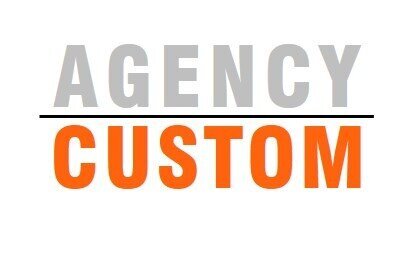How to Choose the Right Custom Fabricator (and Not Regret it)
Choosing a custom fabrication team for a new design project can be a daunting task. A simple internet search will turn up any number of local, national, or international firms with a variety of experiences. Should you choose a small company or a large company? Is it critical that the firm be dedicated to the technology that you want to use? Do you need a programming and commissioning team? Will the manufacturer be able to take the design or “napkin sketch” all the way to fabrication and have the expertise to offer the critical piece of engineering required? Which firm will work best with your company culture? Does it matter if the fabrication team is nearby? What size is the budget? Feeling overwhelmed? No worries, let’s break it down:
Compare
Very few home buyers purchase the first house they visit and instead attend a plethora of open houses before deciding. When searching for a custom fabricator, don’t be afraid to shop around. Ask colleagues for recommendations if they have worked with specific companies. Do a search for local firms and give them a call or drop an email in their inbox. Widen your search if your local options don’t have the capacity or expertise to help. Ask lots of questions. Believe it or not, custom fabricators want you to make inquiries. Informed clients are the best partners for a fabrication team as they have learned what is critical to their project’s success and have developed realistic expectations through the course of researching firms.
Experience
When selecting a manufacturer, it is important to consider their level of experience. Does the team have relevant experience for my project? Have they worked on similar projects in the past? If not, has the team solved problems of equal complexity and do they understand your clients? Are you looking for a team with decades of experience solving complex design challenges or are you looking for a team with fresh ideas that might inspire you?
While searching online, if you come across a firm whose past projects you particularly like, give them a call and ask them about the project experience. How did they arrive at that solution? What did their team bring to the table that made this success possible? How would they approach your project?
Capabilities
While experience often illustrates capabilities, they are not the same. Ask what role the team played in a particular project. Did they provide engineering support (electrical, software, mechanical) in addition to the actual fabrication of the custom project? Can they create in situ renderings and provide engineering analyses on part designs? Do they have the ability to create a functional prototype?
It is important to understand the capabilities of the fabricator beyond the design disciplines. Designers work best as part of a multidisciplinary team, so having others around that think differently can be a benefit to your project.
Culture
When speaking with a custom manufacturer, consider if they will be a good fit for your company’s culture. Do they “get” you? Does your team seek close collaboration or prefer a handoff with limited interaction? Finding a good cultural fit goes a long way towards a productive collaboration and relationship. After all, this is a team that you will be working closely with, and it’s best to work with a group that you want to pick up the phone (or zoom meeting) and talk to.
Bandwidth
Don’t forget to ask about the manufacturers project load and calendar. Will they be able to take on your project and meet the key project milestones and deliverable schedule? If not, it is important to decide if you are willing/able to wait until they can fit the project into their pipeline. Sometimes it’s worth the wait. Sometimes the calendar and customer orders demand another option. If the schedules don’t align but you really want to work with the selected firm, don’t be afraid to ask if they would prioritize your project at an increased rate.
Budget
All projects have budgetary constraints. Sharing your project’s budget up front helps prospective manufacturers create a project plan that meets your needs and allows you to determine if the manufacturers budget requirements are aligned with yours. If you don’t know what an appropriate budget is for your project don’t be afraid to ask or to inquire about another project they have worked on as a cost reference.
Also, when thinking about budget, remember that there are additional costs to consider such as additional engineering fees, certifications, programming, commissioning and integration and shipping and installation costs.
In Short (TLDR)
Do your homework and ask questions. Personality/culture matters. Assess your priorities and align budget expectations. Working with the right custom fabrication team should be a fun and rewarding experience, choose wisely!
